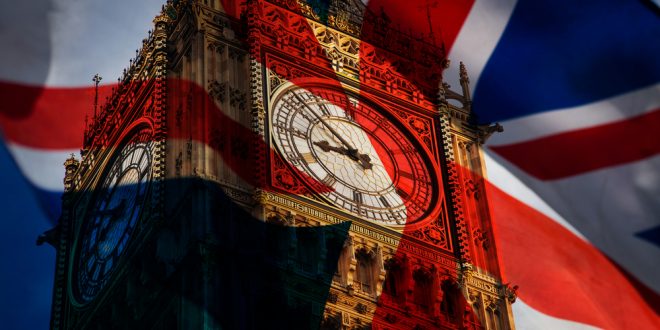Forecaster says $120 oil triggers its pessimistic scenario. Weaker growth would blow Treasury’s budget off track. Great Britain is heading for a recession in the second half of 2022 if energy prices remain at current levels, according to the National Institute of Economic and Social Research.
The research group said UK gross domestic product shrinks 0.2% in the third and 0.1 in the fourth in its pessimistic scenario, which assumes oil prices stick above $120 a barrel and there’s a lasting 70% upward shock to natural gas prices.
The strength of the expansion in the first half, as the economy rebounds from the pandemic, ensures GDP grows by 4% for the year as a whole.
Brent crude oil prices have surged 50% since the Treasury released its budget in October, leaping to almost $140 a barrel on Monday before settling back to $123 later in the day.
That surge followed announcement by the White House in the US that it is looking at sanctions to curb Russian oil shipments. Natural gas in Europe also jumped 79% in chaotic trading, driving up the cost of electricity.
Current energy pricing is in line with a pessimistic scenario in its paper on the economic costs of the Russia Ukraine conflict, which was published last week.
Should prices stick to current levels, the UK would fall into recession in the second half of this year. Of course, it may well be that fiscal policy and monetary policy turn out looser than we assumed, which could stave off the possibility of a recession.
Last week, the Institute warned that the war in Ukraine could knock $1 trillion off the value of the world economy and add 3% to global inflation this year by triggering another supply chain crisis.
The damage to the UK from higher commodity prices and supply chain snarl-ups poses a problem for Chancellor of the Exchequer Rishi Sunak, who will make his Spring statement to parliament on March 23.
The Office for Budget Responsibility, the government’s independent forecaster, is making last minute changes to its outlook to reflect the economic impact of the war. Officials will finish those forecasts in the next few days.
The new forecasts could pose a major problem. Soaring inflation, rapidly rising interest rates and weaker growth may mean he misses the fiscal rules he only unveiled last October.

 Noor Trends News, Technical Analysis, Educational Tools and Recommendations
Noor Trends News, Technical Analysis, Educational Tools and Recommendations




